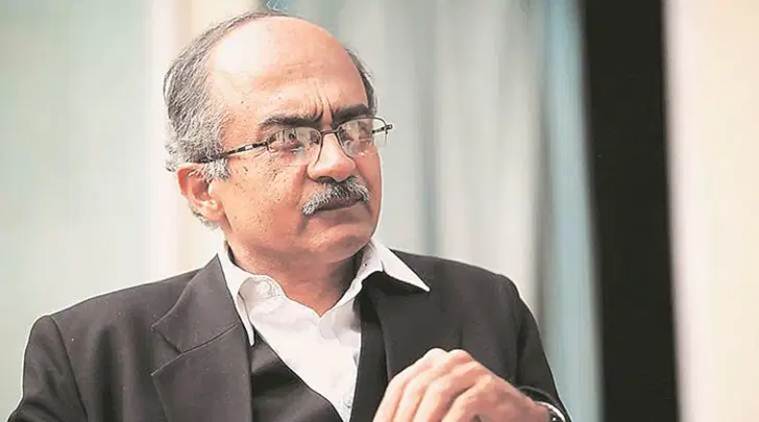 Prashant Bhushan. (File)
Prashant Bhushan. (File)
The Supreme Court on Wednesday reserved its order on a case of criminal contempt against advocate Prashant Bhushan over two of his tweets, with his counsel denying that the tweets interfered with the administration of justice.
“The two tweets are not against the institution. They are not malicious and do not obstruct administration of justice,” Senior Advocate Dushyant Dave, appearing for Bhushan, told a bench of Justices Arun Mishra, B R Gavai and Krishna Murari.
The bench had on July 22 issued notice to Bhushan and Twitter Inc. regarding the two tweets dated June 27 and June 29 stating that they “brought the administration of justice in disrepute”.
On the July 29 tweet on Chief Justice of India S A Bobde seated on a bike, Dave said “these are all statements of facts… and these are not statements that scandalises the court”.
“It was only an anguish that people are waiting for justice and is not contempt,” he said. The counsel submitted that sometimes even legitimate criticism “may be unpalatable”, but the court should be broadminded enough to ignore it. “Please don’t be sensitive about these comments. It seriously affects fundamental rights,” he said.
On the June 27 tweet, Dave said, “There is nothing wrong with criticising the judiciary’s approach… and that’s what it did.”
Illustrating his argument, Dave said the court did not take up the petition regarding alleged spread of hatred against the Nizamuddin Markaz congregation and petitions related to Kashmir. “These are matters of anguish,” he said.
“Your submission basically is we should ignore all of this because such general statements can always be made,” said Justice Mishra.
Dave replied that there are many issues and it will be better not to go into all that.
Initially, Dave told the bench that a writ petition filed by Bhushan challenging the notice was listed before it and requested that the petition be send to some other bench. The bench declined the prayer.
The senior counsel then said the complaint on the basis of which the court had initiated contempt proceedings could not have been placed before the court on the administrative side and then on the judicial side without the permission of the attorney general or solicitor general.
The court told him that it had followed the law in listing it for hearing.